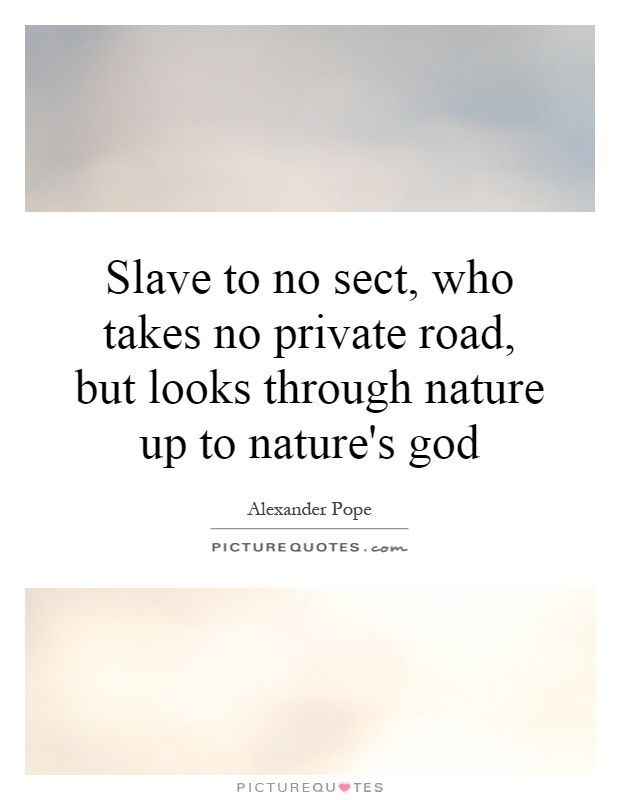Slave to no sect, who takes no private road, but looks through nature up to nature's god

Slave to no sect, who takes no private road, but looks through nature up to nature's god
Alexander Pope was a prominent figure in the 18th century literary world, known for his satirical and philosophical works. One of his most famous quotes, "Slave to no sect, who takes no private road, but looks through nature up to nature's god," encapsulates his belief in the importance of individual thought and observation in understanding the world and one's place in it.Pope was a devout Christian, but he was also critical of the rigid dogmas and sectarianism that often characterized organized religion. In this quote, he emphasizes the idea of being free from the constraints of any particular religious sect or ideology. Instead, he advocates for a more personal and direct connection with nature as a means of understanding the divine.
For Pope, nature was not just a physical entity, but a reflection of the divine order and beauty of the universe. By looking through nature, he believed that one could gain insight into the nature of God and the underlying principles that govern the world. This idea is reflected in many of his works, such as "An Essay on Man," where he explores the relationship between humanity, nature, and the divine.
Pope's emphasis on individual observation and interpretation also reflects his belief in the power of reason and intellect. He believed that through careful observation and reflection, one could uncover the truths of the world and gain a deeper understanding of the divine. This idea is evident in his famous line, "Know then thyself, presume not God to scan; The proper study of mankind is man."
Overall, Pope's quote "Slave to no sect, who takes no private road, but looks through nature up to nature's god" encapsulates his belief in the importance of independent thought, observation, and reflection in understanding the world and one's relationship to the divine. It reflects his rejection of blind adherence to dogma and his advocacy for a more personal and direct connection with nature as a means of gaining insight into the divine order of the universe.












 Friendship Quotes
Friendship Quotes Love Quotes
Love Quotes Life Quotes
Life Quotes Funny Quotes
Funny Quotes Motivational Quotes
Motivational Quotes Inspirational Quotes
Inspirational Quotes